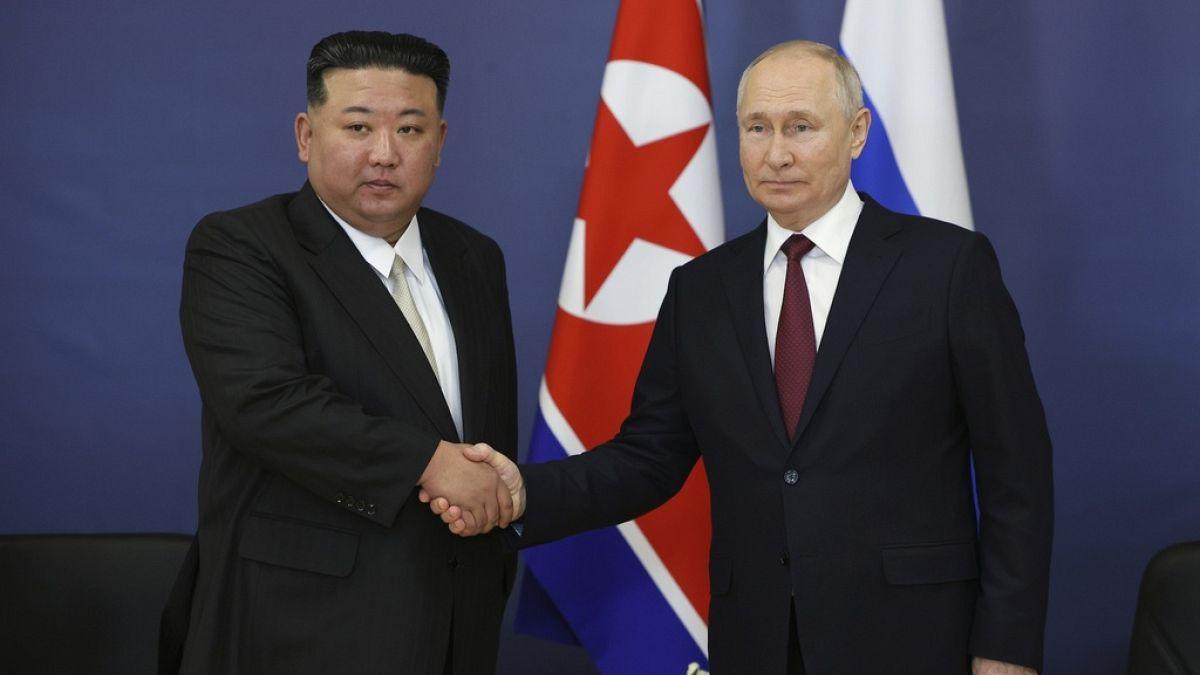Triggered by the recent defense agreement between North Korea and Russia, South Korea is considering the possibility of arming Ukraine, according to a report from Yonhap News on June 20. An unnamed official indicated that this reevaluation follows the commitment between North Korean and Russian leaders to support each other in case of conflict.
Though not officially confirmed by the South Korean government, these reports follow Seoul's condemnation of the strategic partnership deal signed by North Korea and Russia. South Korea's government stated that the partnership violated UN sanctions, emphasizing that any cooperation that enhances North Korea's military capabilities breaches UN Security Council resolutions and is subject to international monitoring and sanctions.
In a recent statement, Russian President Vladimir Putin praised South Korea for not directly supplying arms to Ukraine, which was perceived as an olive branch to Seoul, dissatisfied with Moscow's growing military ties with Pyongyang.
Historically, South Korea has been hesitant to send arms to Ukraine due to its policy of not arming countries involved in active conflicts. Despite pressure from NATO allies, Seoul has maintained its stance, although it has indirectly supplied 155mm artillery shells to Ukraine via the United States.
Reports suggest that the two Koreas are engaging in a proxy war, with South Korea indirectly aiding Ukraine and North Korea allegedly supplying weapons to Russia. Chris Park from the Center for Strategic and International Studies noted that this situation effectively places the Koreas in opposition through their support of different sides in the Ukraine conflict.
The new defense cooperation agreements between North Korea and Russia, described as the most significant since the Cold War, have escalated tensions with South Korea. Pyongyang has recently launched provocations, including sending waste-filled balloons and soldiers crossing the border, prompting South Korea to fire warning shots.
Concerns are rising in Seoul about North Korea potentially receiving Russian support for its missile program in return for its military backing. The strategic agreement signed by Russian President Vladimir Putin and North Korean leader Kim Jong Un guarantees mutual assistance in case of aggression.
Although it is unclear if the new agreement offers the same level of protection as the Cold War-era pact, it marks a significant step towards a closer relationship between the two nations. The agreement obliges each party to use all available means to assist the other in case of an attack, in compliance with national laws and Article 51 of the United Nations Charter, which upholds the right to self-defense.
Both leaders have characterized the deal as a breakthrough, enhancing cooperation in security, trade, investment, culture, and humanitarianism. Kim Jong Un declared the agreement as the "strongest ever treaty," signaling a solid alliance and full support for Russia’s actions in Ukraine. Putin referred to it as a significant advancement in their bilateral relations.


:quality(70)/cloudfront-us-east-1.images.arcpublishing.com/archetype/KVVVGQQ7CFG2BKPXLI5KDKXTHM.jpg)
:quality(70)/cloudfront-us-east-1.images.arcpublishing.com/archetype/DPJCOA66KBGKXIU46AVS6Y5XTU.jpg)


